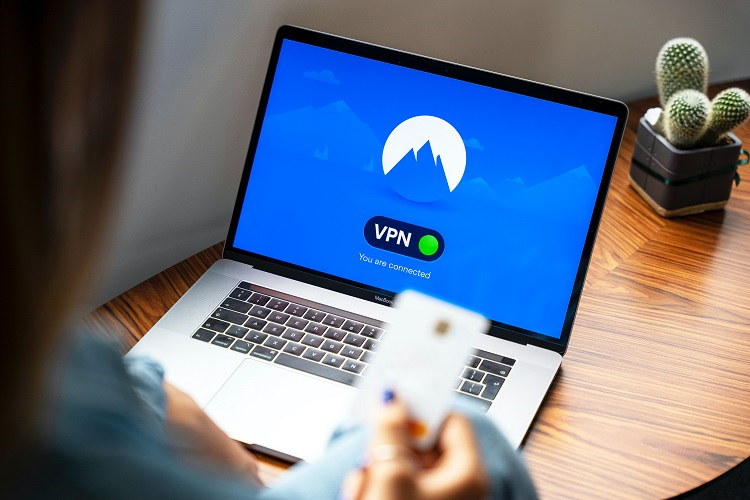Getting a VPN (Virtual Private Network) might not be the top priority on your list when it comes to gaming, but using a VPN for gaming is becoming more of a necessity than a choice.
When you are gaming online, protecting your privacy is the number one thing you need to ensure. VPNs protect your online privacy by rerouting your online traffic through a secure VPN server, thus making it look like you are virtually present somewhere else. It not only prevents your Internet Service Provider (ISP) from snooping – but also prevents hackers from spying on you. Also, by using a VPN, gamers can get over the issues of ISP throttling and potential DDoS attacks.

That is just a small reason why VPNs are becoming famous in the gaming industry. There are a number of best gaming VPNs online, but the most favorite among gamers is NordVPN – with 256-bit uncrackable encryption and DNS/IPv6 leak protection. You can check NordVPN’s in-depth testing and full review to learn why it is a great tool for gaming.
Key Benefits of using a VPN for Gaming

Let’s look at some major benefits of using a VPN for gaming. These are not your traditional VPN uses in gaming to help you decide if it is something you want to get.
1. Protect against DDoS Attacks
A DDoS (distributed denial-of-service) attack is when someone sends multiple requests from various compromised computers to a single system – forcing it to shut down or go offline. In the past, DDoS attacks were only available for websites or online games. But today, anyone can perform a DDoS attack against other users – making it a great cybersecurity risk for gamers.
When you are playing a multiplayer online game, denial of service is the most common attack you may face, especially if you are not using a VPN. Because a VPN encrypts your online traffic and masks your IP address, making it impossible for others to find your connection. This way, you stay protected against DDoS attacks.
2. Avoid Swatting
While it is not as common as DDos or Dos attacks, swatting is still a major security concern for gamers, especially when it comes to multiplayer games. If you are not using a VPN, your IP address is out in the open – meaning the other players can track down your location and even stalk you offline.
In extreme cases, your opponents can also use a technique called swatting, where someone sends emergency services to the other player’s house reporting an immediate threat to human life, like a hostage situation or terrorism. It is so serious that it triggers a response and even deployment of a SWAT team to the house. It is a serious concern, as the FBI has issued a public warning against swatting. In a recent case, a college student got a sentence of 33 months for hosting racist online swatting.
3. Avoid Bandwidth Throttling
This may come as a surprise to you, but most internet service providers (ISPs) slow down or throttle the bandwidth of some users or all users on the network for various reasons. In most cases, throttling takes place during specific days or time windows to ease the congestion on a network. However, in most cases, ISPs throttle the bandwidth of users on the network who are conducting data-intensive tasks like gaming, streaming, torrenting and more.
For instance, if you are playing Call of Duty Black Ops, the average data per hour should be around 80MB. Now, if you don’t use a VPN, your ISP will see this large amount of data transfer and will throttle your bandwidth – ultimately affecting your gaming experience. But with a VPN, you can avoid bandwidth throttling as it encrypts your traffic and makes it harder for your ISP to track your online activities.
4. Reduce Ping Times
Long ping times and latency is the worst thing that can happen when you are playing battle games online. It’s a real letdown when you go into battle only to find your powers aren’t working as they should, or you don’t have enough time to respond as the enemy charges forward. Lags and latency can ruin your chances of winning.
Ping time is the total time it takes to send and receive data between your devices and the gaming server. The higher the pings, the higher latency, and vice versa. One of the main reasons behind higher pings is the distance between your location and the gaming server. A VPN can help reduce pings because you can easily connect to a server location that is close to the gaming server – thus reducing the distance your data has to travel.
5. Get around geo-blocks
It is no news that most online multiplayer games have several servers in multiple regions, and you can only play in your region. Now the problem is most of the time; games are only released in North America or Europe before taking months to launch worldwide. It is very disappointing when you find out that the game you have been waiting for will not be released in your country for another few months.
With a VPN, you can easily bypass these geo-blocks and play on any gaming server you want. For example, NordVPN offers 5500 servers in 59 locations, including the US, the UK, Canada, Germany, and more. You can easily connect to any VPN server location and play games in different regions, and access region-locked games, even if it is not available in your country yet.
Bottom Line
These are just a few reasons why you need a VPN for gaming. But that is not all a virtual private network can do for you. With a VPN, you can spoof your geo-location and access the internet virtually from anywhere in the world. You can play not only geo-blocked games but also stream geo-restricted content like Netflix, Hulu, Disney+, BBC iPlayer, and more with a VPN. Therefore, VPN is a great tool for online privacy and bypassing firewalls.



















